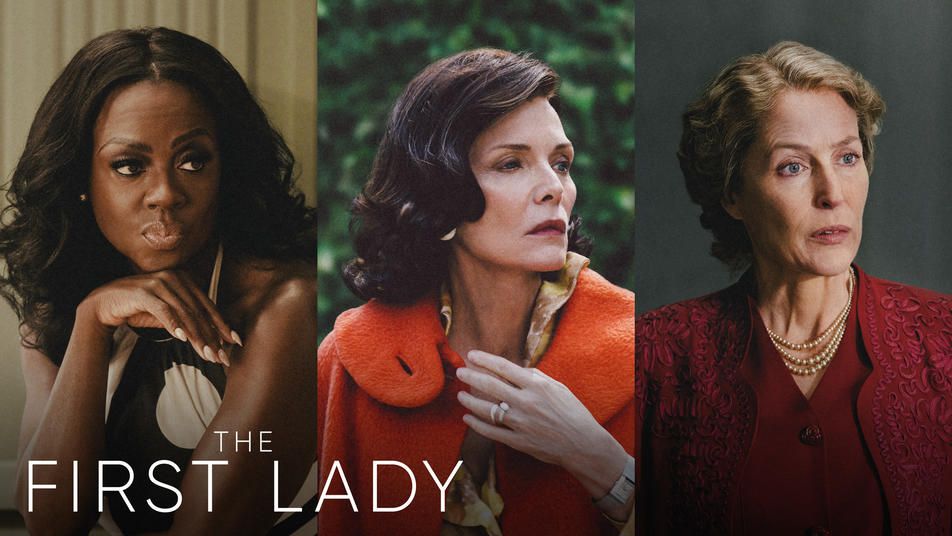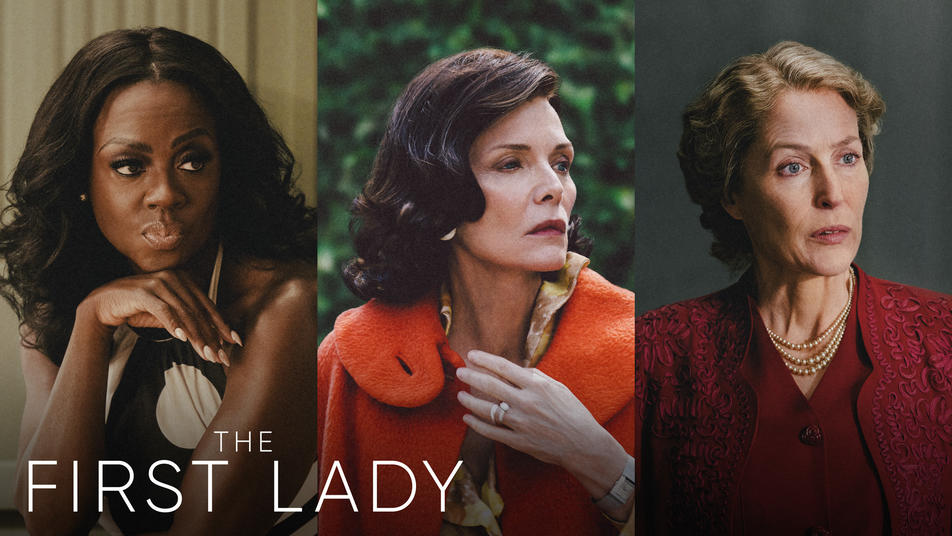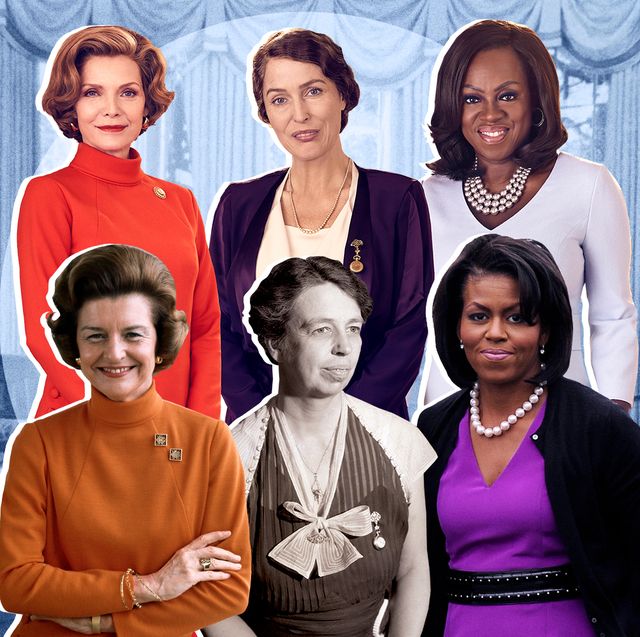
“The First Lady” (2022)–Second to None

Three remarkable women, in The First Lady, a Showtime mini-series (released April 17), provided indispensable support to their husbands before and throughout their presidencies. Eleanor Roosevelt (Gillian Anderson), Betty Ford (Michelle Pfeiffer), and Michelle Obama (Viola Davis)–all three made soul-crushing sacrifices, wearing masks of the “political wife” who stands by her man. Almost miraculously, they achieved meaningful successes on their own, despite the political machinery determined to relegate them to merely decorative roles, a poise and witty charm to the public. Each woman’s psychological emptiness or vulnerability slowly gets unmasked. Commanding respect and acknowledgement of their contributions to social progress, these First Ladies were second to none.
Being the First Lady–even the word “lady” seems anachronistic–is an amorphous, thankless, unpaid position with no job description and little recognition. First Ladies give up their own ambitions, careers, friends, and even their personalities, all in service to their husbands’ ambitions and legacy. First Ladies are meant to be seen, look pretty, and not be heard. As the term “lady” implies, their genteel manner and disposition to always be nice allows for little individuality or identity of one’s own.
These three First Ladies tolerate no fools. With flashbacks to their childhoods (less so for the story of Eleanor Roosevelt), each woman is shown developing interests and independence as young girls on the cusp of adulthood. Eventually “tamed” by the circumstances surrounding their husbands’ ambitions, we see three very different yet very determined women, spanning a century, who defy the expectations imputed on them.
Eleanor Roosevelt’s life is perhaps best known as the privileged and highly educated woman from a family dynasty of nearly aristocratic proportions. An adult during the Depression, she has great empathy for the suffering of the majority of Americans, despite the rarefied bubble she has lived in. This empathy continued throughout her life but was rarely sanctioned by FDR’s advisers.
Perhaps the most misunderstood, despite her enormous popularity in the seventies and eighties, is Betty Ford. Her untold story takes center stage in this historical drama. It begins with the abusive first husband she endured until the dashing young attorney, Gerald Ford, gave her the legal advice to divorce him. An extraordinary love story in the Valium-fog of suburban women is uncomfortable to see and realize its affirmation of a status quo the Feminine Mystique refuted.
And in the case of Michelle Obama, her backstory centers on her strong family support, especially from her mother, in the face of her struggle to succeed despite microagressions from highschool to Princeton, and through her early legal and administrative career.
Among the three first-rate actors, the most magnetic performance is Michelle Pfeiffer’s, fighting for the ERA and abortion rights while suffering drug-addiction, alcoholism and breast cancer. Giving grace, dignity and subtlety to a character that could have been stereotyped, Pfeiffer is the First Lady to watch as this may be the best acting in her illustrious career.
Gillian Anderson and Viola Davis are always expected to give solid performances and here, unfortunately, their lip-pursing and facial contortions distract from their usually powerful and charismatic acting. Their First Lady narratives, however, are equally as riveting as that of Betty Ford.

In the case of Eleanor Roosevelt, Anderson gives a chilling and affecting rendition of a hyper-intellectual woman who cannot connect emotionally with those who love her, particularly her daughter Anna and her lover, Hick. As Michelle Obama, Davis has more challenges to overcome. With a living figure to represent and one who is so recently an icon for Americans, Davis occasionally seems to select the familiar over the nuanced and subtly layered. The screenwriters’ insistence on familiar issues supporting gay marriage, affordable health care, and gun control could have been underplayed for lesser known personal matters. Surely the venomous attacks on Michelle Obama’s family and her views deserved a bit more edge to her persona.
With minor reservations, The First Lady is highly recommended for lesser known historical facts and for rare archival footage that recreates the tone and identity politics of the time. There is a lot to learn about The First Lady.
Availability: Showtime

Francine Falk-Allen
This series was riveting; my husband felt so too. I agree with you regarding Michelle Pfeiffer; she is one of my favorite actresses but in this case I found I often completely forgot she was there and was convinced I was seeing Betty Ford—about whom I knew practically nothing, going in. Also agree with your other assessments. A powerful series; should probably be shown in high schools.
PS: I really like your writing.